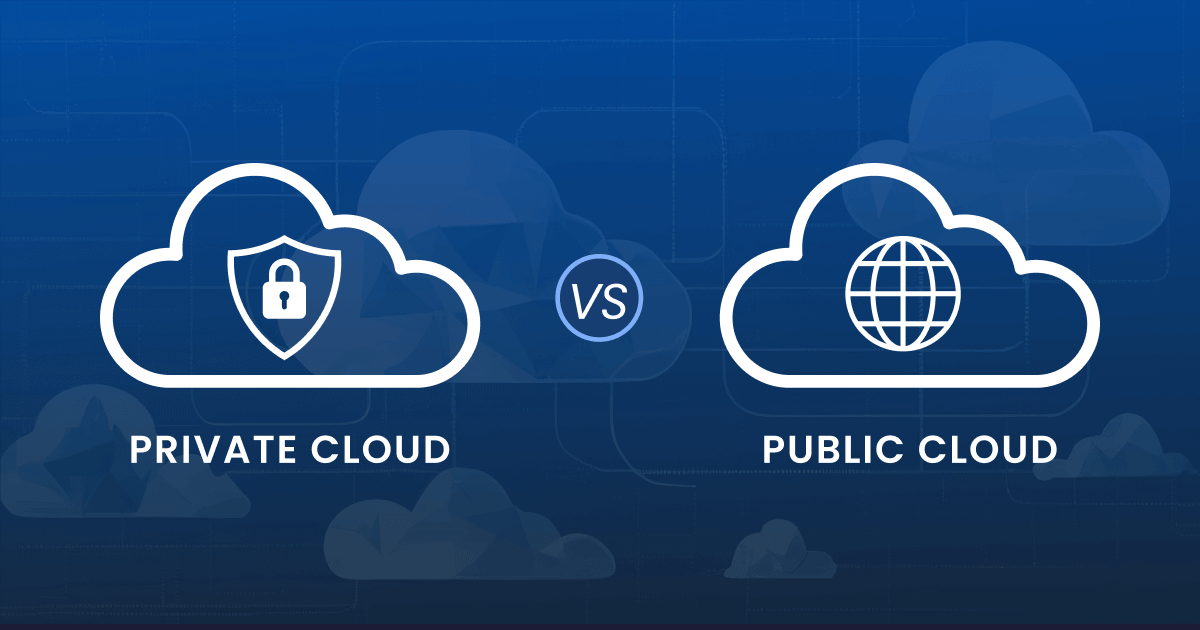When explaining to someone about cloud computing, you can include many sub explanations such as its classifications, types, models, and benefits. There are two main types of clouds, public and private. We can include Hybrid cloud computing too, but let’s focus on these types for now. Before you start your decision about which one to choose, let’s go over them quickly.
What is private cloud?
To explain it in one sentence, private cloud is a cloud that belongs solely to your business. That is, no one other than you can use it. Using private cloud is a great option for large companies that include highly secure information.
- 1. They are known to be dedicated and secure, serving only one customer. They have custom security, which is why they are used by highly regulated companies and governmental agencies. These resources aren’t shared with others, ensuring high levels of protection and privacy.
- 2. They are pricey since they work only for one customer. No shared data center means no shared cost, making it less advisable for small businesses or short-term use.
- 3. Flexibility is a key characteristic. When you’re the only customer, you have full control, allowing customization to your needs, which supports growth and improvement.
What is public cloud?
In simple words, public cloud is for the public, offering its services to many customers. When using a public cloud server, you are not responsible for managing the hosting.
- 1. Public clouds are much cheaper than private clouds. Shared costs make it more budget-friendly, potentially opening growth opportunities.
- 2. A drawback is reduced security. Multiple users can create vulnerabilities. Thus, public clouds are not recommended for sensitive data.
- 3. Public clouds offer limited customization. Shared use limits control and flexibility, like owning an item everyone else uses too.
So now that you know what private and public clouds are, the choice is yours. Large companies are advised to use private clouds because they value security, reliability, flexibility, and control. On the other hand, public clouds are usually used by small businesses because they value staying in budget, having some level of security, and the service it provides. So, which one is the right fit for you?
Visit us on our website Blomp and read some more, you’re welcomed anytime!


